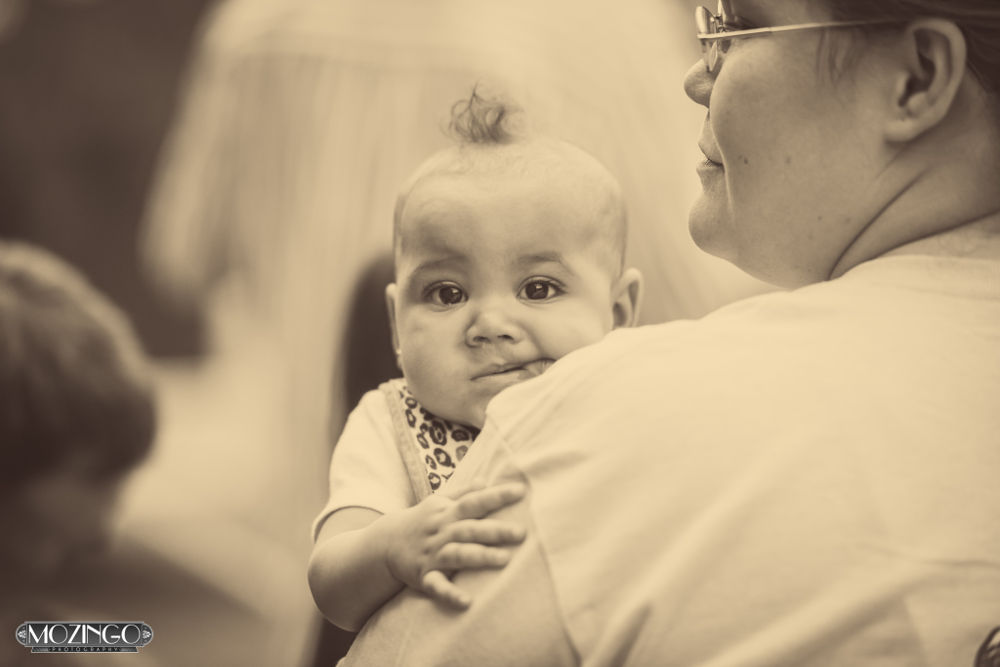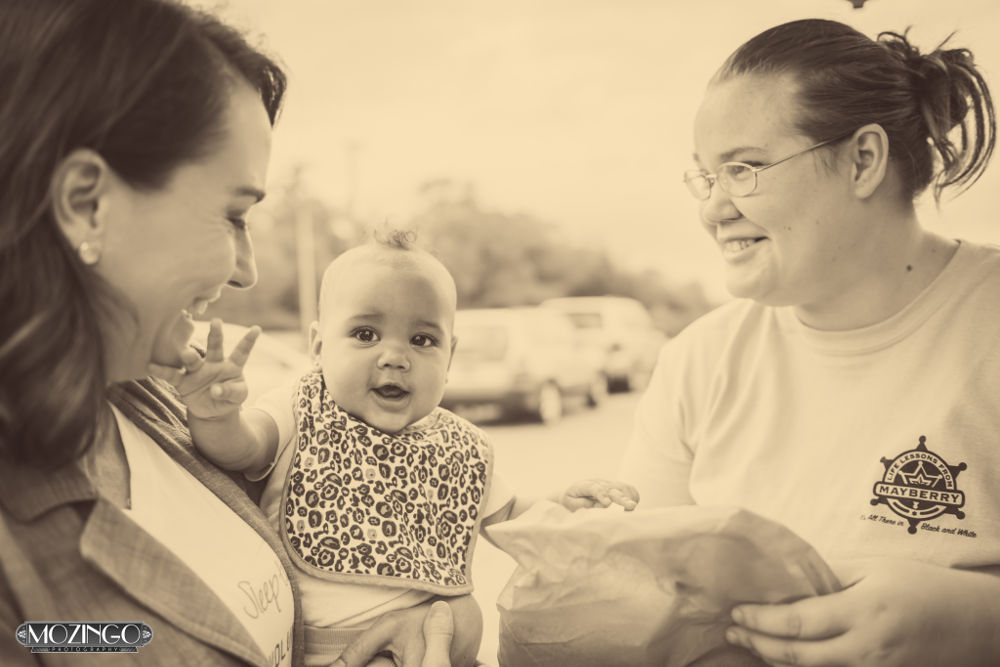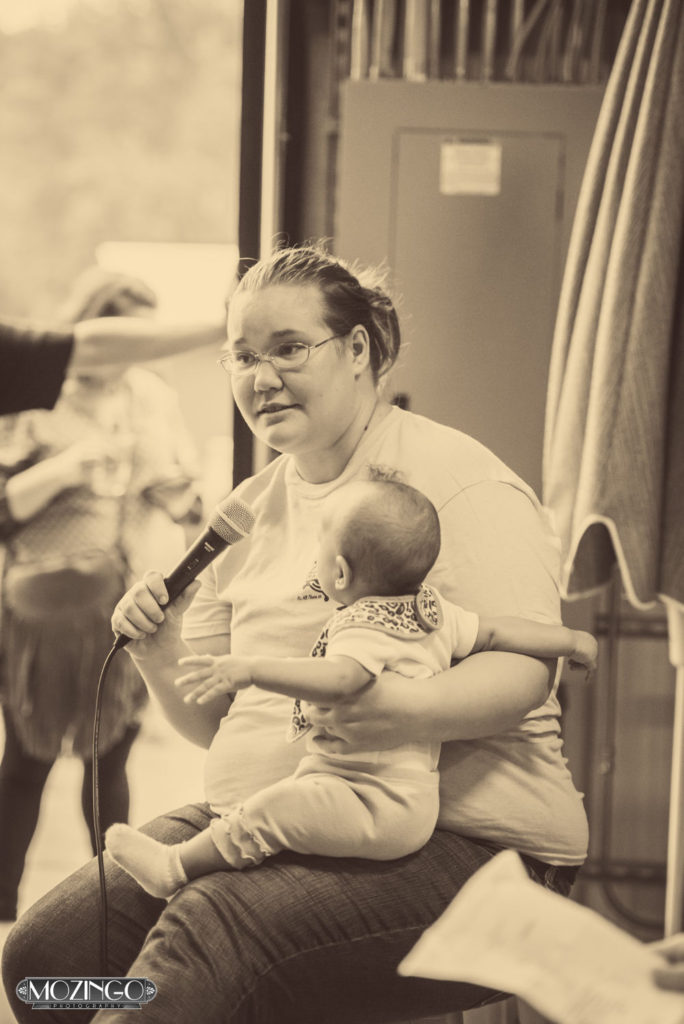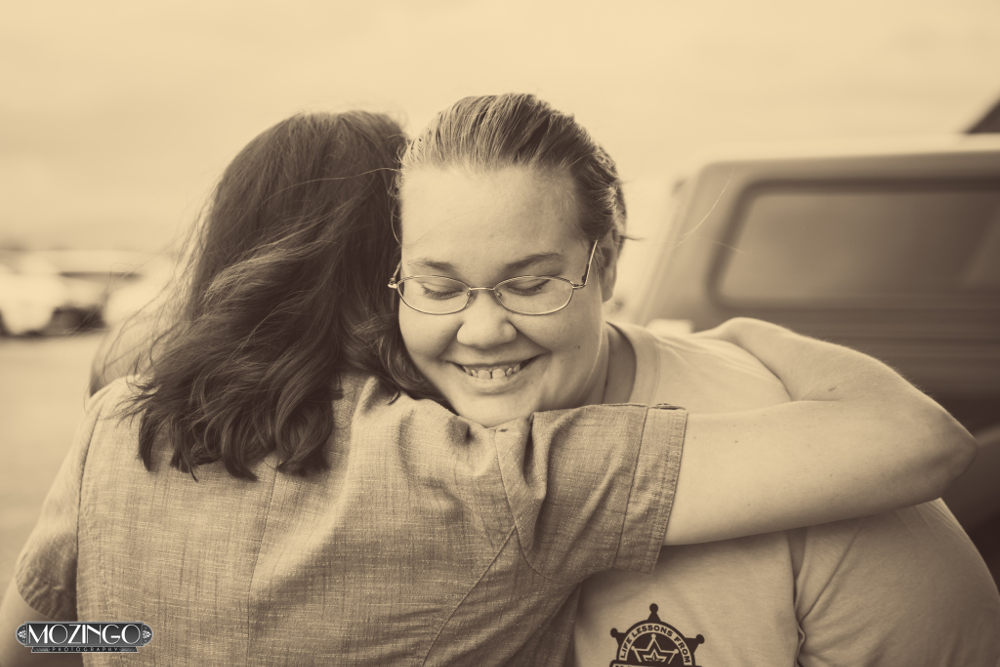A year and a half ago Natasha’s options seemed grim. She was struggling with drug addiction and a series of transient and abusive living situations that had eventually devolved into homelessness. She had given up her son to his father. A self-destructive cycle of cocaine and men continued, and then Natasha discovered she was pregnant again—with no idea who the father was. Terrified and alone, she found her way to the Western Carolina Rescue Mission in downtown Asheville.


Sleep Tight Kids founder Jill Schwarzkopf first met Natasha there, delivering a bundle of baby clothes for the soon-to-arrive girl. Natasha just wanted to talk—about her son, about how she wanted to get her life together. She made Jill promise to come back. After the baby, Eliana, was born, Sleep Tight Kids returned with blankets, baby books, soaps, powders, and stuffed animals. Natasha told them she was working to get out of the Mission, to get housing for herself and Eliana. She asked for help in eating healthier, and for clothes to wear to job interviews.
In May Natasha spoke at the Sleep Tight Kids fundraiser at Bold Rock Cider. As she told her story to a room full of people, you could hear a pin drop. These experiences, she said, had led her to realize that there are people who care about her—people who don’t even need to know her in order to care. Natasha said she could feel that support through the items she’d been given—the baby clothes, blankets, toys—and feeling that connection was part of what pushed her to keep working to get her life on track, and gave her hope that she might one day have her five-year-old son back with her.
Two months later, Natasha called Jill. After a year at the Western Carolina Rescue Mission, Natasha told Jill, she and Eliana had been approved for housing. She was calling from her very own apartment. Natasha had gotten a solid job, and was on the path to making her own way, independently supporting herself and Eliana. And—the crowning joy—she was seeing her son again.


Government-funded social services often don’t stretch beyond formula and diapers for infants. There’s a huge need to fill that gap—not just to feed children, but to clothe them, let them snuggle in something warm, give them something to play with. In short, these items make them feel cared for, even by faraway or anonymous caregivers. As Jill puts it:
“WE’RE ACTUALLY PROVIDING HOPE TO BABIES AND MOMS,
LETTING PEOPLE KNOW WE CARE ABOUT THEM.”
![]()